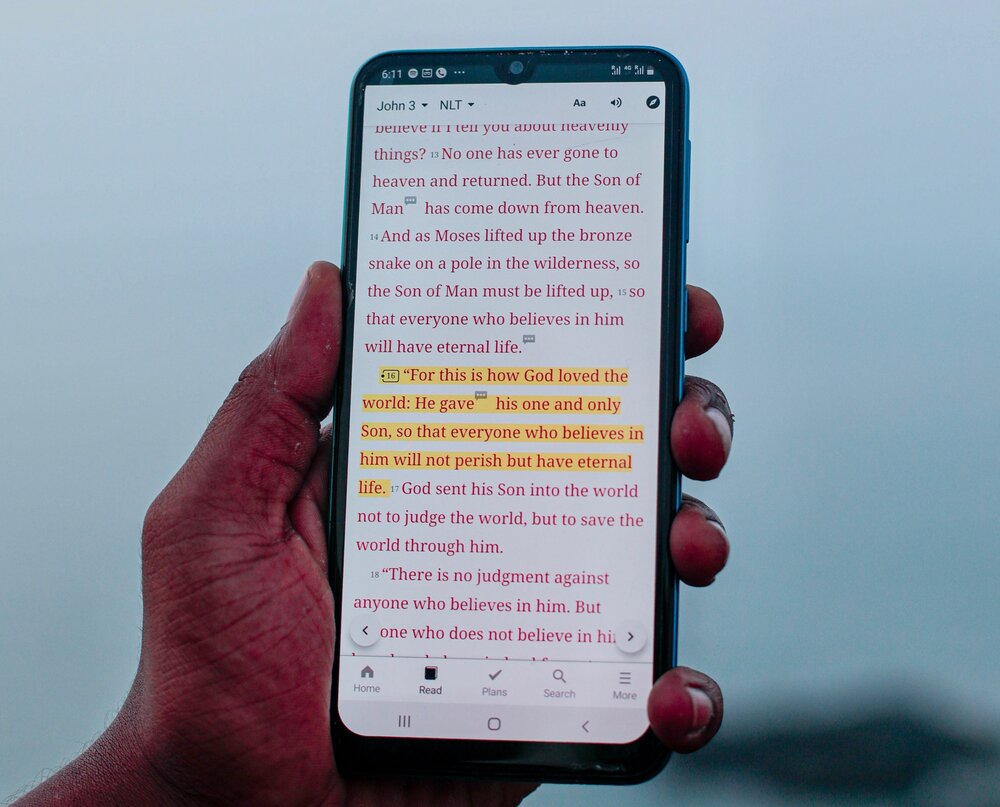 Picture James Bond without the British ties, the intricate gadgets, and the promiscuous lifestyle.
Picture James Bond without the British ties, the intricate gadgets, and the promiscuous lifestyle.
Instead of a license to kill, he has qualifications to teach. And rather than stopping the complex schemes of eccentric madmen with tactical flair, verbal sparring, and obvious plot armor, his mission is to spread a simple message through relatively orthodox means.
No, the person you’ve imagined isn’t double-o-seven at all…but it does sound a bit like me.
Over the years, I’ve developed the skills needed to teach the Bible and I meet the biblical requirements to do so, yet at the time of this writing, it’s not my profession. In fact, very few people in my day-to-day life know of my theological work. To my coworkers, fellow churchgoers, and most of my family, I’m just a guy.
Instead of lamenting this status, however, I’ve learned to embrace my indistinct role. It’s allowed me to have judgment-free conversations with people who otherwise wouldn’t have opened up. I can hear their real thoughts about Christians and the faith as a whole. It’s not until they ask a biblical question that they realize this random dude knows a lot more than he lets on.
My position is a special one, no doubt. And I think others can gain from my experiences too.
That’s why I’ve gathered 5 observations from my espionage here—each of which describes a general attitude or tendency I’ve noticed while undercover. I’ve also explained how to respond to each finding so you can improve your own approach to evangelism.
#1 Good Character Opens Doors
 “Preach the gospel at all times; use words if necessary.”
“Preach the gospel at all times; use words if necessary.”
There’s a reason why that quote, despite its false premise that we can share the gospel in silence, is so popular.
Throughout all the conversations I’ve had about church, Christianity, and the Bible, it’s clear that character determines how much respect a believer will get.
You can be the wisest Christian alive and have the most theological insight in the world, but if your character doesn’t align with Christ, your faith—as others see it—is dead.
The Christian message doesn’t matter when its herald is marred by greed, lust, or wrath. We’ve all heard enough stories about pastors cheating on spouses and grasping for money every chance they get. The Church is tired of hearing it, and unbelievers are tired too.
The people I see daily don’t all have high standards of morality, but they still know the believer’s standard. They know we shouldn’t have dirty mouths and even dirtier minds, so when they see a person who lacks those things, it’s notable.
I am by no means the perfect example of Christian life, but it’s funny how many times coworkers say, “I know you don’t speak like that” or “you don’t seem like the type to get drunk” or “he doesn’t talk that way about girls”. No, they don’t say that because I’m a boy scout with the personality of cardboard. They say that because it’s how I am.
I don’t explicitly tell people I’m a Christian. They just notice that I’m different.
That difference is nothing to be ashamed of. In fact, it makes my beliefs attractive. It’s no coincidence that talk about the faith comes up when I’m around—my character opened the door to those conversations.
Again, I’m not bragging about myself here either. Jesus described this as a common experience among His followers:
You are the light of the world. A city that is set on a hill cannot be hidden. Nor do they light a lamp and put it under a basket, but on a lampstand, and it gives light to all who are in the house. Let your light so shine before men, that they may see your good works and glorify your Father in heaven. (Matt. 5:14-16)
The true Christian’s actions aren’t done to exalt self, but to lead to the glory of God.
The time between our shining and God getting glory is often delayed, but when we watch both our life and our doctrine, we grow closer to that result each day (see 1 Tim. 4:16).
#2 Even Unbelievers Can Smell a Fake
 Sometimes I think nonbelievers are more discerning than my Christian peers.
Sometimes I think nonbelievers are more discerning than my Christian peers.
Just the other day, I spoke with a coworker—who admittedly described himself as “not a good person”—about church culture.
What’s interesting is that even he, with his limited church attendance and Bible knowledge, knew all about the feel-good churches, the Osteen-types, and the only-preach-on-money hustlers. He even told me about an acquaintance who studied to be a pastor only to exploit people for money.
Now look, my coworker can’t recite verses on those who disguise themselves as servants of righteousness (2 Cor. 11:14-15 ESV), who in their greed, exploit with false words (2 Pet. 2:3 ESV), and who teach for shameful gain what they should not teach (Titus 1:11 ESV), but he knew the reality of those Scriptures.
The fakes are so bad these days that even nonbelievers see how foolish they are. And the good news here is that it makes our job easy. We no longer have to campaign to address recent heresy—that’s been done already. Plus, the fakes are so mainstream now that their lies are obvious.
So what do we do with our newfound time?
We preach the word (see 2 Tim. 4:2 NIV). We stay true to the text and teach the same message Christians have told for 2000 years.
Yeah, it’s unfortunate that the fakes are popular, but when you’re surrounded by counterfeits, the real thing becomes much more attractive.
All the false teachers may sound good at first, but they don’t satisfy the hunger we have for the truth. They don’t answer life’s biggest questions. They don’t give you hope when you see no reason to live.
They’re just a bunch of fake people living fake lives whose ideas can’t stand the trial of fire. But for those of us who align our words with Scripture, we can rest assured that “the word of our God stands forever” (Isaiah 40:8).
#3 No One Likes the Old Testament
“The New Testament is all you need as a Christian.”
“We can follow Jesus without believing Old Testament myths.”
“The God of the New Testament is my God; the God of the Old Testament is always angry.”
If I got a dollar each time I heard a form of those statements, I’d be richer than Solomon in his prime.
The fact is, people don’t like the Old Testament. Sure, they enjoy the Sunday school story of David and Goliath, but to them, the OT as a whole is a harsh, restrictive, and outdated book of myths. If we want to grow in the faith, they say, we should focus on the New Testament—and even then, the red letters are the only important ones.
The people who say this, however, forget that “all Scripture is God-breathed” (2 Tim. 3:16 NIV).

We can’t divide the Bible based on our acceptance. The Bible is one book. Each section is a puzzle piece that fits the bigger picture. And without the Old Testament, we’re left with an incomplete view of Christianity.
Nothing screams, “I don’t read the Old Testament” like “Jesus was a socialist” or “He was only a good teacher”. Genesis through Malachi denies every rational way to reach those conclusions.
That’s why it irks me when people give out Bibles with the New Testament alone. I get that it’s the most relevant part of Scripture today, but that’s no reason to exclude the valuable context of the Old Testament.
Reading the New Testament without the Old is like watching a movie’s sequel before the original. The Empire Strikes Back is great on its own for example, but “I am your father” hits different after you’ve seen A New Hope.
We have to stop treating the Bible like it’s not a self-contained book. What other book do we read starting on page 250 of 300 while ignoring everything that came before it?
Without the Old Testament, we lose the doctrine of original sin, we skip examples of the Law’s shortcomings, and we miss the foreshadowing of a King who will bring the utopia we all crave.
All of that happens when we avoid the “book of myths”. So instead of treating the OT like lesser Scripture, we should weave it into New Testament teaching—just like the apostles did.
#4 Biblical Skill Is at an All Time Low
 Professing Christians don’t even read the Bible now, so you can imagine what the general public is like.
Professing Christians don’t even read the Bible now, so you can imagine what the general public is like.
There’s been a sharp decline in biblical literacy over the last few decades. No, that doesn’t mean people are fully ignorant of Scripture—after all, I’ve discussed Bible passages, church culture, and even topics like the rapture with the most unlikely acquaintances—but the skills needed to properly interpret and explain it are rare.
There was a time in America when the general public knew what Calvinism was. Yet now we think the Bible is nothing more than a rule book.
There’s hardly any discussion on deep theology, no persuasive form of apologetics, and no passion for Scripture’s systematic belief system. It’s just do’s and don’ts.
The Bible’s been relegated to storytime for grownups, or sometimes even a prop for more important political beliefs.
People can’t rightly divide the word of truth, so their work inevitably causes reason to be ashamed (see 2 Tim. 2:15).
Sure, people are still passionate about biblical morality, but their lack of skill makes them dangerous. That passion without competence leads to cults, it makes misguided extremists, and it fosters stuff like antisemitism that has no place among professing believers.
This is why it’s so important that we get our doctrine right. And to do that, we have to master the skills of interpretation. We need to know the rules of context and cross referencing too. Or to use the language of scholars here, we need to learn proper hermeneutics.
It’s not as simple as “God said it, I believe it” if we don’t understand what God said.
That’s why we, as genuine believers, have to lead—not only in our boldness to declare the truth, but in our accuracy when we speak it, and in our patience to develop skill in others.
#5 The Bible Will Always Be Relevant
 Some hate it, and others love it, but no one is indifferent to the Bible.
Some hate it, and others love it, but no one is indifferent to the Bible.
No matter where I go or who I talk to, Scripture has a funny way of coming up.
You might dismiss that claim since I live in the so-called Bible Belt of America, but even online, it’s the same way. I’ve lurked random forums, blogs, and comment sections and found sprinkles of Scripture everywhere:
- Sometimes it’s an atheist telling Christians that they don’t actually know the Bible.
- Sometimes it’s a bot spammed with comments after posting John 3:16.
- Other times it’s a hedonist who finally sees a shred of truth in the Word.
No other book has this effect on the world. The combination of staying power, cultural impact, and emotional provocation place the Bible in a tier of its own.
What’s even more interesting, though, is that Scripture actually claims to have these effects.
One of my favorite verses comes from the writer of Hebrews who says:
[T]he word of God is living and active, sharper than any two-edged sword, piercing to the division of soul and of spirit, of joints and of marrow, and discerning the thoughts and intentions of the heart (Heb. 4:12 ESV).
The author of Proverbs also says that “every word of God proves true” (Prov. 30:5 ESV). And Paul, speaking of the biblical gospel, expressed thanks that his audience “accepted it not as the word of men, but for what it really is, the word of God,” (1 Thess. 2:13 NASB).
The Bible constantly states its uniqueness and proves it throughout all of history. So yeah, it’ll always be relevant.
Our job as Christians is to prepare with that knowledge in mind.
If the Bible is always relevant, then the questions, attacks, and conversations will come. But like Philip who guided the Ethiopian Eunuch (see Acts 8:26-40), we have to see those moments as opportunities.
Those are chances to lead even more people to the truth, so we must first, as the Apostle Peter wrote, prepare to give our defense (1 Pet. 3:15 NIV).
Will You Accept Your Mission?
 And just like that, my report is over. I’m sure I’ll have more to relay from the trenches later, but for now, that’s good enough.
And just like that, my report is over. I’m sure I’ll have more to relay from the trenches later, but for now, that’s good enough.
Like I said earlier, the Bible will always be relevant. That means people like me will always have more work to do.
No, the job isn’t always glamorous, but it’s my mission, and I chose to accept it a long time ago.
So what about you? Will you do the same?
Will you accept the Bible’s call to everyday evangelism?
I sure hope so.
Because the world needs more good agents in the field.
-Drew
Photo Credits (by order of appearance):
- Sammy Williams on Unsplash
- Yan Krukov on Pexels
- Olya Kobruseva on Pexels
- Tim Wildsmith on Unsplash
- Nafis Abman on Pexels
- Daniel Dara on Unsplash
- Chris Yang on Unsplash
Leave a Reply